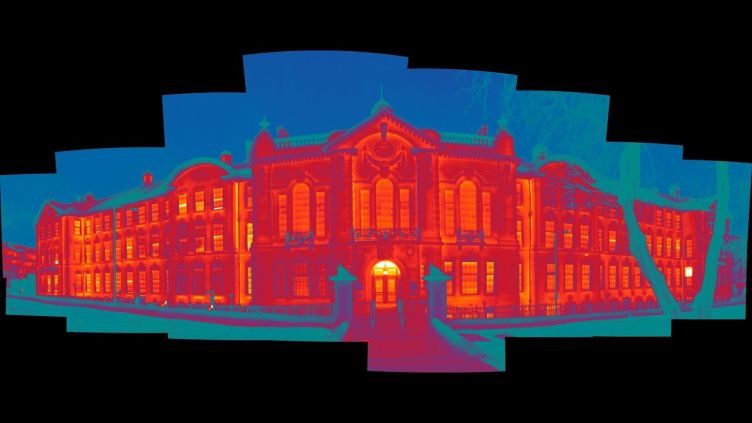Dr Danielle Densley Tingley
Department of Civil and Structural Engineering
Senior Lecturer in Architectural Engineering


+44 114 222 5057
Full contact details
Department of Civil and Structural Engineering
Room F134
Sir Frederick Mappin Building (Broad Lane Building)
Mappin Street
Sheffield
S1 3JD
- Profile
-
My research explores sustainable building design solutions, focusing on material impacts, so we can create a built environment that operates within the carrying capacity of the planet.
Dr Danielle Densley-Tingley
Danielle studied her undergraduate degree and PhD in the Department, and has completed post-docs here and at the University of Cambridge, before starting as a lecturer in 2016.
Danielle is passionate about reducing the impact of the built environment on the planet, particularly focusing on how our use of materials can reduce greenhouse gas emissions, and thus minimise climate change.
Danielle’s previous roles have included leading the work on material efficiency in construction in the UK INDEMAND Centre at the University of Cambridge; where she worked with industry to understand the practical challenges and opportunities of reducing material demand in the built environment.
She has also worked on the multi-disciplinary BIG Energy Upgrade Project at the University of Sheffield, exploring the environmental impacts of external wall insulation and advising partner local authorities on best practice retrofit.
Her PhD was in design for deconstruction and material reuse and her undergraduate degree in Structural Engineering and Architecture.
Throughout her research she aims to work with industry partners in order to put research into practice, and deliver a real change in the built environment.
This Future of Structures podcast includes more details about Dani's research interests, including discussions about circular economy principles and reducing the carbon impact of construction practices.
Can a circular economy make the construction industry sustainable?
This article was produced by Futurum Careers, a free online resource and magazine aimed at encouraging 14-19-year-olds worldwide to pursue careers in science, tech, engineering, maths, medicine (STEM) and social sciences, humanities and the arts for people and the economy (SHAPE).
Research Themes
- Research interests
-
Danielle's research looks into both the materials used in creating structures, and the design of structures.
She takes a multi-disciplinary, multi-scale approach to tackle this problem, working with colleagues from the Departments of Materials Science, Geography, Architecture, Urban Planning, Computer Science, and Automatic Control and Systems Engineering on a diverse range of projects, from investigating public perception of low-carbon materials, to understanding resource in informal settlements, through to her work as a Director of the Urban Flows Observatory.
The Urban Flows Observatory seeks to understand the flow of energy and resources in cities, with Danielle leading the work on resource flows, and in particular trying to answer the question, ‘what is Sheffield made of?’.
Understanding existing built environment stocks enables strategic retrofit, material salvage and reuse when demolition occurs, reducing the demand for new materials. This work will develop an approach to measure the circular economic potential of a city’s built environment.
- Publications
-
Journal articles
- Residential building facade segmentation in the urban environment. Building and Environment, 199. View this article in WRRO


- Solid wall insulation of the Victorian house stock in England : a whole life carbon perspective. Building and Environment, 191. View this article in WRRO


- Corrigendum to “Ecological network analysis on intra-city metabolism of functional urban areas in England and Wales” [Resour. Conserv. Recycl. 138 (2018) 172–182]. Resources, Conservation and Recycling, 145, 457-457.


- Ecological network analysis on intra-city metabolism of functional urban areas in England and Wales. Resources, Conservation and Recycling, 138, 172-182. View this article in WRRO


- Aligning carbon targets for construction with (inter)national climate change mitigation commitments. Energy and Buildings, 165, 106-117. View this article in WRRO


- Understanding and overcoming the barriers to structural steel reuse, a UK perspective. Journal of Cleaner Production, 148, 642-652. View this article in WRRO


- The environmental impact of phenolic foam insulation boards. Proceedings of the Institution of Civil Engineers (London), 170(2), 91-103. View this article in WRRO


- The wood from the trees: The use of timber in construction. Renewable and Sustainable Energy Reviews, 68(1), 333-359. View this article in WRRO


- A multi-method approach for analysing the potential employment impacts of material efficiency. Resources, Conservation and Recycling, 109, 54-66. View this article in WRRO


- An environmental impact comparison of external wall insulation types. Building and Environment, 85, 182-189.


- Developing an LCA methodology to account for the environmental benefits of design for deconstruction. Building and Environment, 57, 387-395.


- Design for deconstruction and material reuse. Energy, 164(EN4), 195-204.


- Supporting Design for Deconstruction through Environmental Assessment Methods. Architectural Science(3), 1-18.


- Design for deconstruction and material reuse. Proceedings of the Institution of Civil Engineers - Energy, 164(4), 195-204.


- Mapping resource effectiveness across urban systems. npj Urban Sustainability. View this article in WRRO


Chapters
- Applying Circular Economic Principles to Reduce Embodied Carbon, Embodied Carbon in Buildings (pp. 265-285). Springer International Publishing


- Residential building facade segmentation in the urban environment. Building and Environment, 199. View this article in WRRO
- Research group
-
Resources, Infrastructure Systems and built Environments Discipline
- Grants
-
Sheffield Urban Flows Observatory
Prof. Martin Mayfield and Dr Danielle Tingley have won funding for a new Sheffield Urban Flows Observatory which will create a model of Sheffield’s energy and resource usage using fixed and mobile sensors and thermal cameras attached to drones, balloons and cars to scan the city.
Multi-scale, circular economic potential of non-residential building stock
This project aims to develop a spatially multi-scale framework to assess CE potential in individual buildings, cities and countries. The framework, applied to non-residential construction in the UK, will enable estimation of CE potential in the existing stock.
- Potential PhD offerings
Unfortunately I am not seeking any PhD Students at this time, however please contact me if you are interested in doing a project in my research area.

